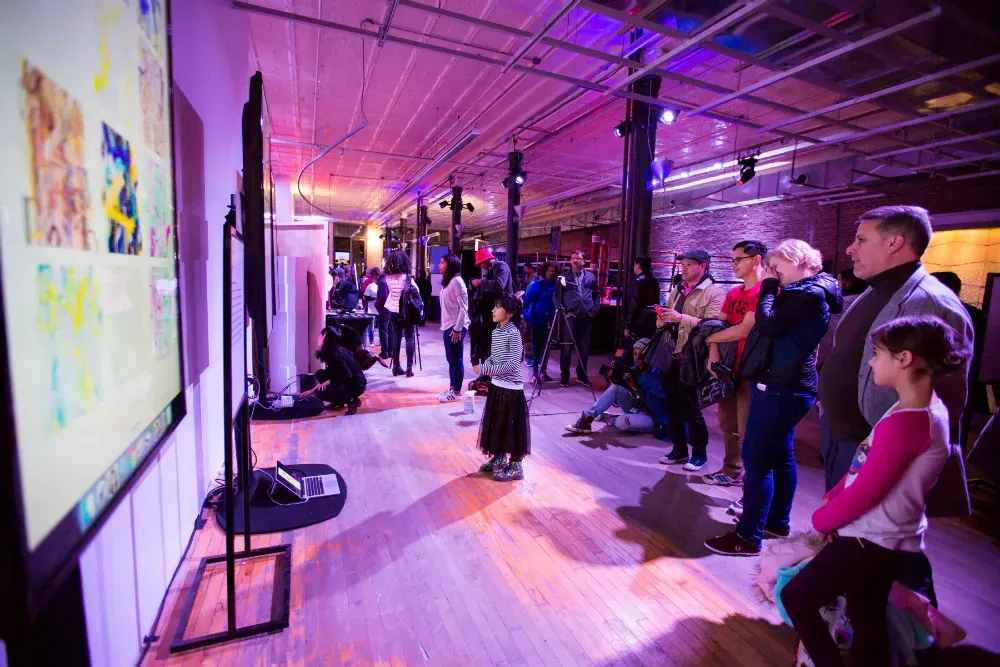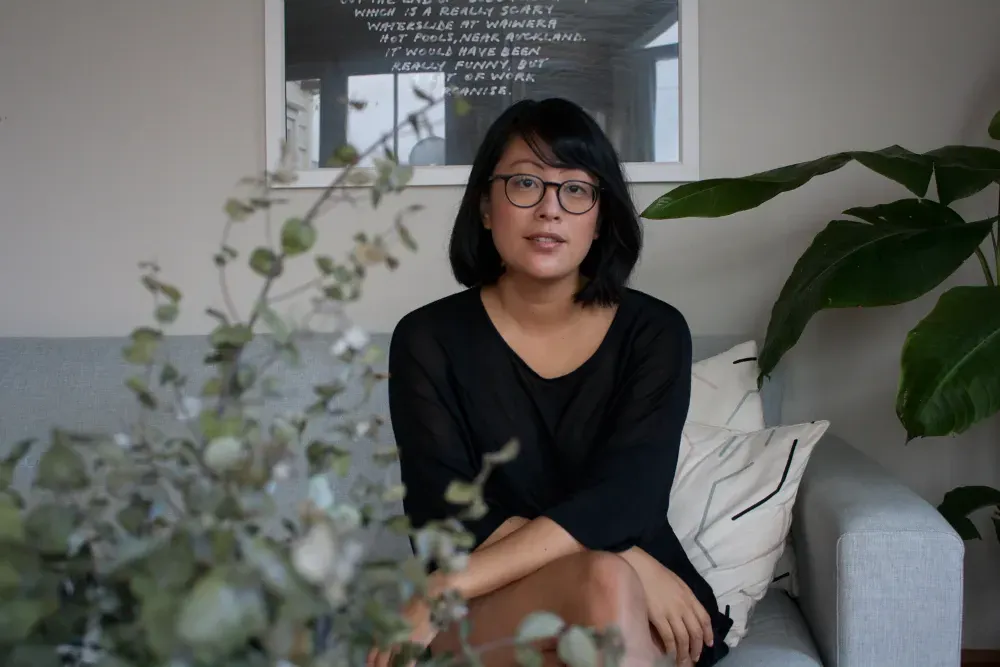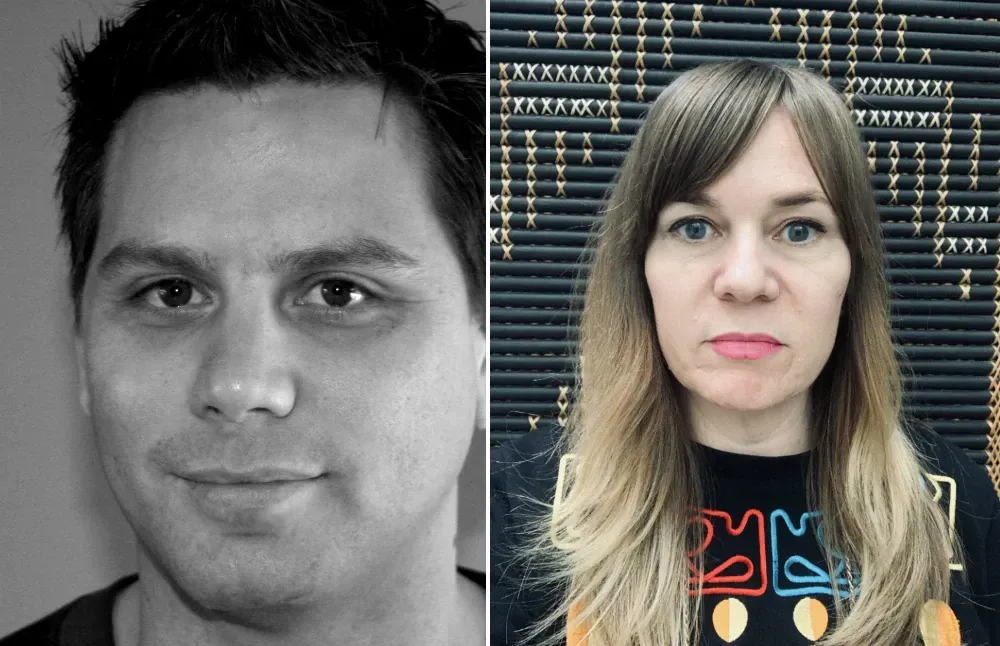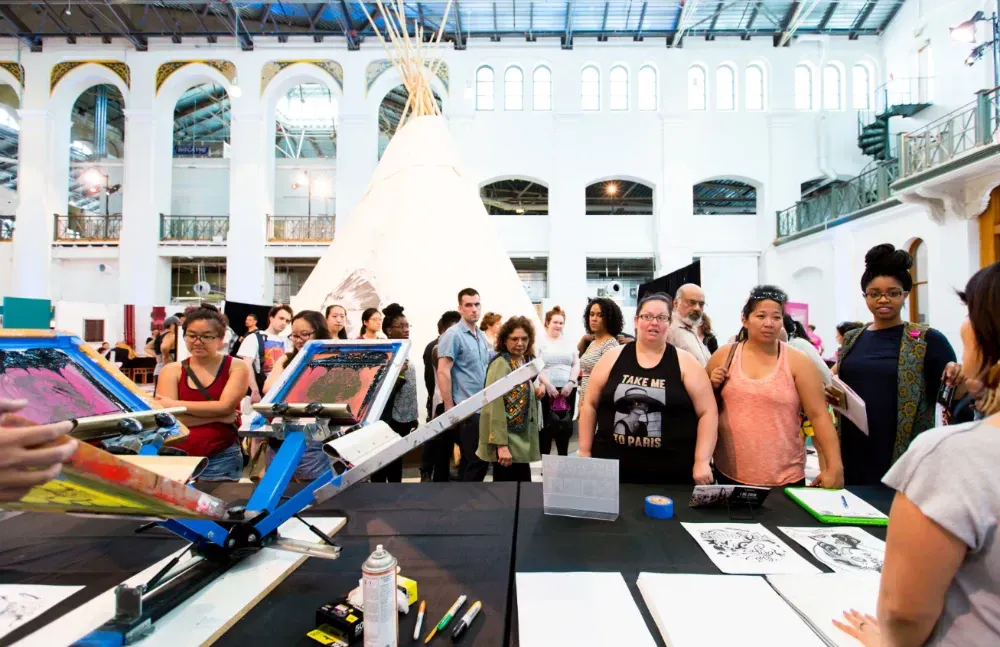In Auckland for Labour weekend? Get to Silo Park
Written by
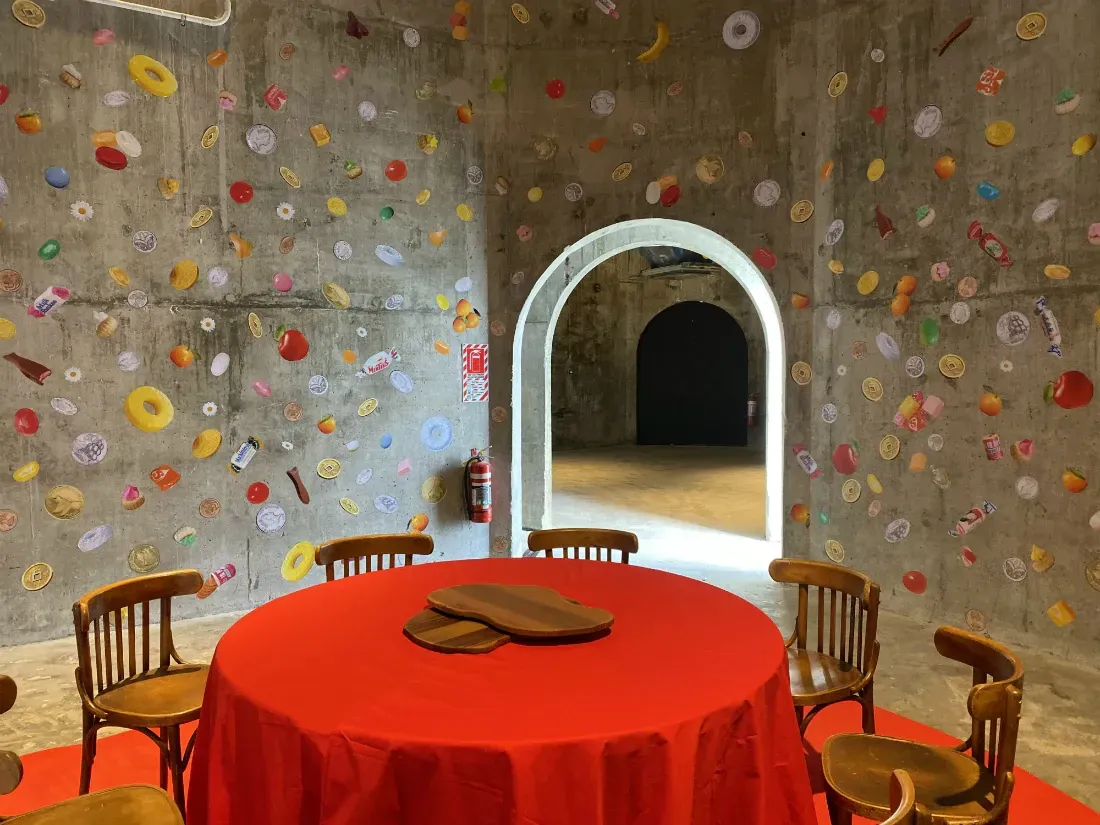
In partnership with Auckland Museum.
What does the notion of “civility” mean in 2019? To explore this question, Auckland Museum has joined forces with the Smithsonian Asia Pacific American Centre (APAC) to present Te Whāinga: A Culture Lab on Civility. The free event, which will be held in Auckland’s Silo 6 and Silo Park from Friday 25th to Monday 28th, will see top creatives from New Zealand and across the globe present a series of original art experiences, performances and interactive activities.
Te Whāinga was dreamed up by Dina Jezdic, Public Programme Content Specialist at the Auckland Museum and Adriel Luis, US-based Curator of Digital and Emerging Media at the Smithsonian APAC. “There was an amazing synergy of our values, approaches to work, artists we were interested in and stories we wanted to unpack,” Dina recalls of meeting Luis at a conference last year. “We wanted to explore the idea of the institution and not necessarily break out of it, but figure out how to defrost it, how to help create change.”
“We wanted to explore the idea of the institution and not necessarily break out of it, but figure out how to defrost it, how to help create change.”
Adriel Luis says Te Whāinga aims to “challenge the idea of nationalism,” and that it’s location outside of the museum’s walls is significant. “When you’re having a conversation and there is a hierarchy, intentionally or unintentionally, between visitors and a museum, it's hard to expect people to feel comfortable speaking candidly.”
Their method of approaching artists was unconventional, but ultimately embodied a spirit of inclusivity and equality. “I invited people to my house and we had a party,” Dina laughs. “It felt very fluid. Initially we approached artists and creatives who were also community organisers and they invited other artists to collaborate.” Adriel likened this approach to “collecting Pokemon”.
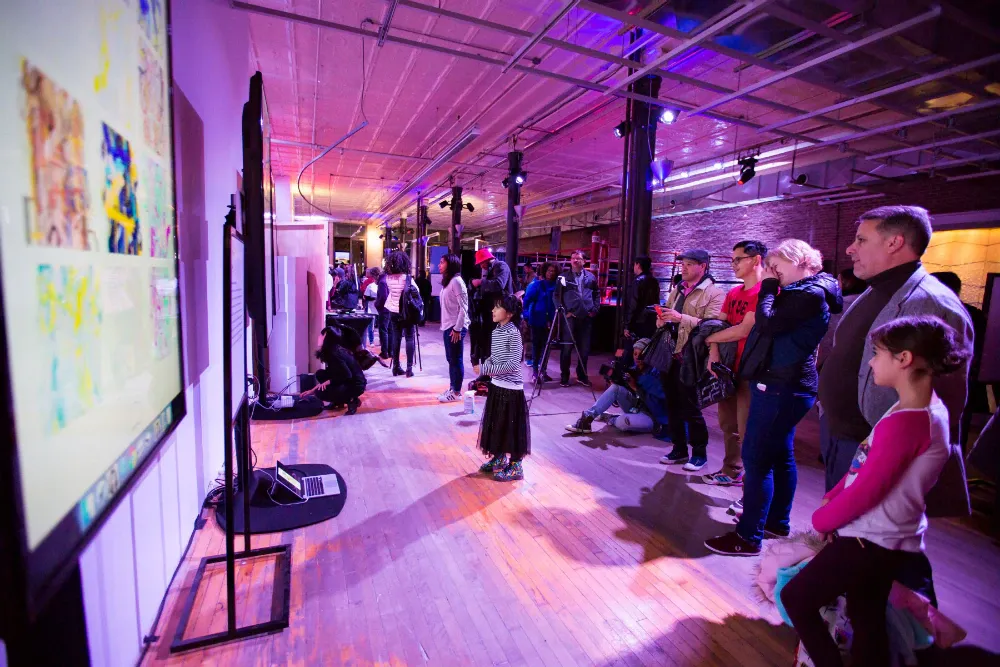
CrossLines: A Culture Lab on Intersectionality presented by the Smithsonian Asian Pacific American Center in Washington. Photo by Les Talusan.
Here are four of those artists and creatives on the offerings they will present:
Kereama Taepa: Colonialism is like a game with no winners
“Civility is a weird word that makes me feel gross,” says artist Kereama Taepa, who uses virtual reality as a medium to explore notions of cultural appropriation. “There is no direct translation of it in Māori.”
In keeping with his past works, Kereama intertwines video game references with his work for Te Whāinga.
“It’s inspired by the video game Beat Saber where you slash blocks,” he says. “Except in this instance, you are holding a toki and smashing treaty words associated with colonialism. Because you are holding a Māori weapon, you are taking a Māori standpoint and being the opposite of civil. You are attacking western notions and ideas.”
“Civility is a weird word that makes me feel gross... There is no direct translation of it in Māori.”
For Kereama, the choice to use video games is symbolic because “colonialism is very systematic and strategic, like a game but there are no winners.”
Miranda Smitheram: Civility flows from a respect for land and a respect for place
Digital designer Miranda Smitheram researched her own whakapapa to create an installation which merges layers of pencil and film and motion cut digital textile.
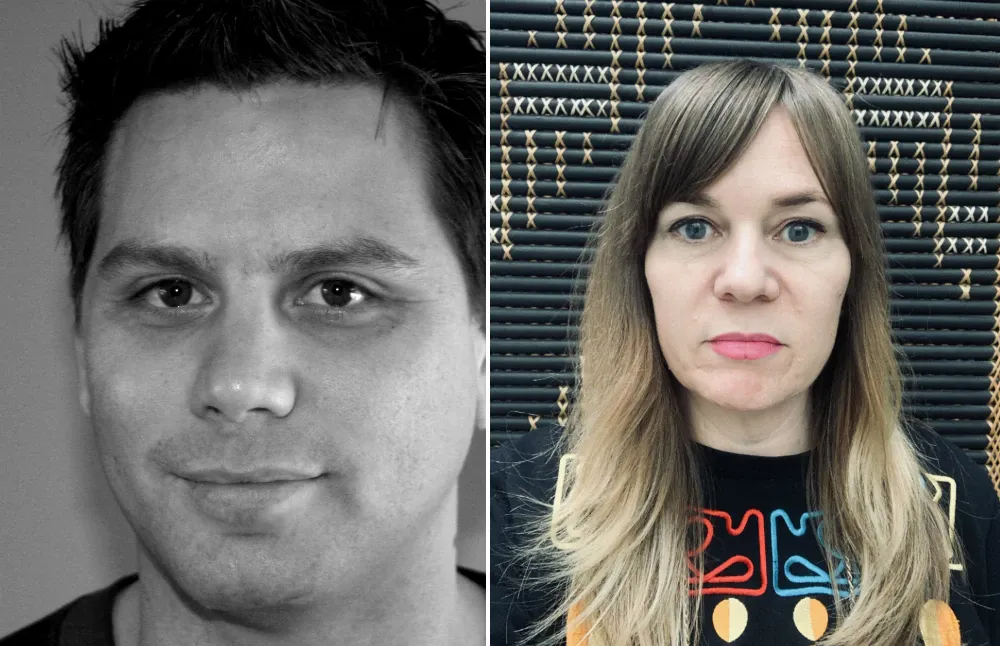
Artists Kereama Taepa and Miranda Smitheram.
“For me, whakapapa is a way of understanding ourselves and gaining a deeper understanding of everything around; civility flows from a respect for land and a respect for place,” she explains. Miranda’s deeply personal work saw her travel to Otago Peninsula, where she tried to untangle “murky family stories” about early whalers and Ngāi Tahu. “There are very few written stories, they are all held in peoples mouths, which is why I built an installation that is a bit of a lovesong to place. I can’t access those stories, but they are embodied in place.”
“That the Smithsonian and Auckland Museum have created this space for artists is vital,” Miranda says. “It's great to see artists and creative practitioners come together in the spirit of experimentation.”
Rosabel Tan: Generosity is a strong foundation for having more difficult conversations
Collaboration and kindness is at the heart of Rosabel Tan’s offering, titled At the bottom of every wishing well is a mother asking if you’ve had lunch.
“Immigrants of Asian descent seem to share a similar story,” says Rosabel, founding editor of The Pantograph Punch and director of Satellites, a series of events showcasing contemporary Asian artists in Tāmaki Makaurau. “Growing up, my parents never said ‘I love you’, but did ask if I had eaten. It took me a while to figure out that is what they meant when they asked that.”
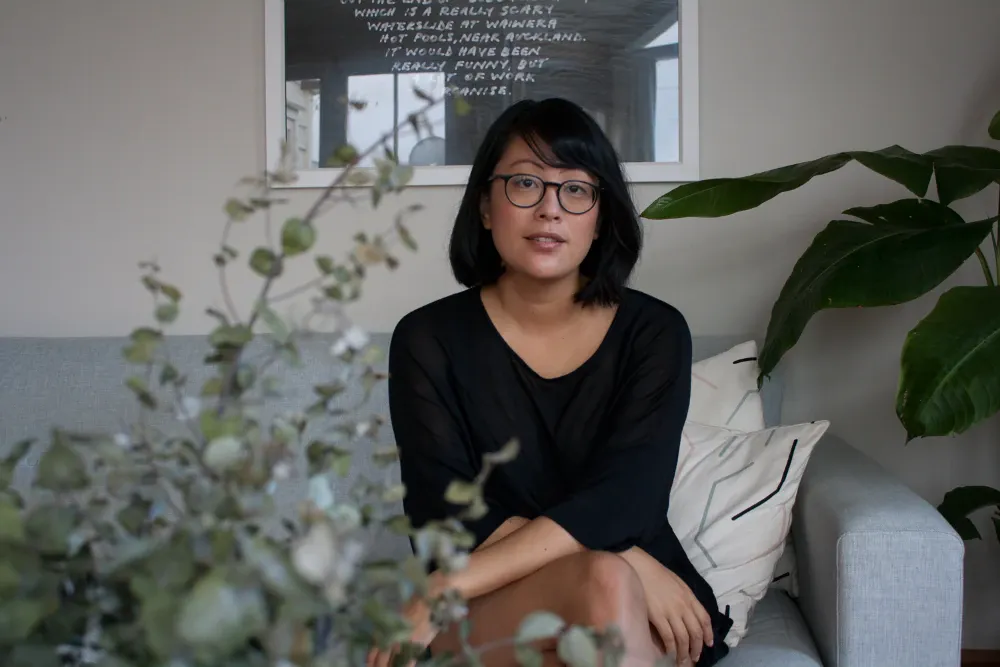
Rosabel Tan.
With artist and Massey design lecturer Kerry Ann Lee, Rosabel is working alongside artists Ruby White (formerly Miss Changy), Wai Ching Chan and Michael McCabe to create a mix of activations, installations and workshops at Te Whāinga. On the theme of civility, Rosabel says: “We were exploring the question of how we live together and how we can create a space for each other, especially when we’re all quite different in a city like Tāmaki Makaurau. A starting point is celebrating those acts of kindness and care, because that spirit of generosity is a strong foundation for having more difficult conversations.”
Jack Gray: Civility happens through disconnection
For Jack Gray, renowned choreographer and dancer and founder of the Atamira Dance Company, his initial challenge for Te Whāinga was figuring out how best to use the space. “The long days meant that I was going to get tired if I danced,” he laughs. He decided to explore the civility theme through an audio experience, something he had “never expected to do.” Through guided meditation and by giving people the opportunity to create their own experiences, Jack hopes to create a piece that connects the inner and outer worlds in relation to civility.
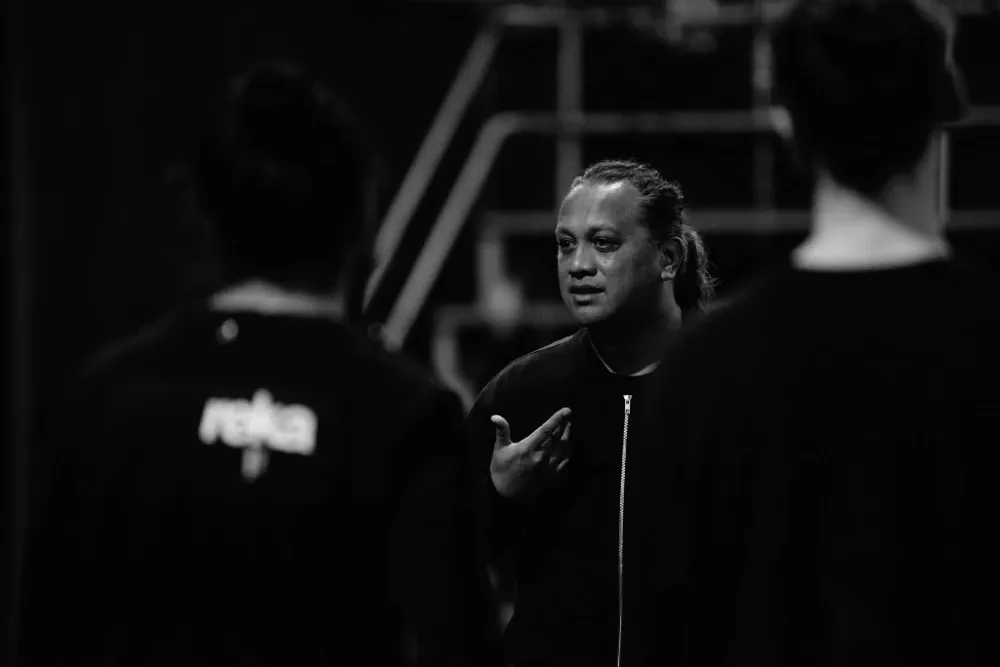
Jack Gray.
“Civility happens through disconnection,” he explains. “You see it in day to day life - everything from public transport to how tables and chairs are set up is designed to separate. My desire in creating this piece was to draw on Tikanga Māori, while the process was inspired by my Movement for Joy community classes. This piece for Te Whāinga is all about a transmission of energy that connects us back to the planet.”
Te Whāinga: A Culture Lab on Civility will be held at Silo Park and Silo 6 in Auckland at the following times: Fri 25, Sat 26 & Sun 27 Oct: 12pm-8pm. Mon 28 Oct: 10am-1pm. No tickets required and entry is free. For more information visit Tewhainga.com.
